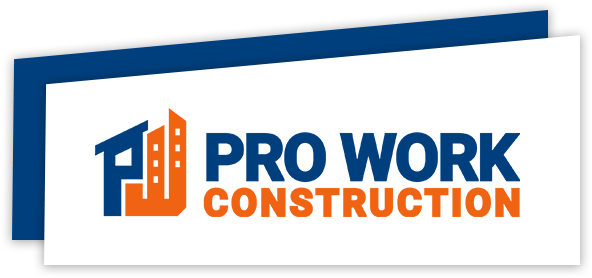Pros and Cons of Vinyl Floors

Vinyl flooring has gained significant popularity in recent years, especially among homeowners considering residential renovations. Known for its affordability, durability, and design versatility, it’s a top choice for many looking to upgrade their flooring. However, like any material, vinyl flooring comes with its own set of advantages and disadvantages. If you're contemplating a residential renovation in Orlando, FL, and are curious if vinyl floors are the right choice for your home, this detailed guide will help you make an informed decision.
Advantages of Vinyl Floors
1. Affordability
Vinyl flooring is one of the most cost-effective options on the market. Compared to hardwood, ceramic tiles, or stone, vinyl provides a luxury appearance without the hefty price tag. This makes it an attractive choice for budget-conscious homeowners looking to achieve a high-end look during their residential renovation in Orlando, FL.
2. Durability
Vinyl floors are highly durable and can withstand heavy foot traffic, spills, and daily wear and tear. Many options come with a robust wear layer that protects against scratches and stains, making it ideal for homes with kids and pets.
3. Ease of Maintenance
One of the biggest selling points of vinyl flooring is its low maintenance. Routine cleaning involves simple sweeping and occasional mopping with a mild cleaner. The water-resistant properties of vinyl also mean you don’t have to worry about moisture damage, a common concern in humid areas like Orlando, FL.
4. Versatility in Design
Vinyl flooring comes in an array of styles, colors, and patterns, allowing homeowners to mimic the look of wood, stone, or tile. Whether you prefer a modern aesthetic, a rustic charm, or a classic elegance, vinyl can cater to your design preferences seamlessly.
5. Comfort Underfoot
Vinyl flooring tends to be softer and warmer underfoot compared to tile or stone. Some types of vinyl even come with an additional layer of cushioning, providing extra comfort and reducing noise, which can be particularly beneficial in multi-story homes.
6. Easy Installation
Vinyl is relatively easy to install, whether you choose a peel-and-stick option, a click-lock system, or a glue-down method. This can save you time and labor costs during your residential renovation project.
Disadvantages of Vinyl Floors
1. Susceptibility to Damage
While vinyl is durable, it’s not invincible. Sharp objects can puncture or cut the flooring, and heavy furniture can cause dents. Unlike hardwood, which can be sanded and refinished, damaged vinyl usually needs to be replaced.
2. Environmental Impact
Vinyl flooring is made from synthetic materials, including PVC, which can release volatile organic compounds (VOCs). These chemicals can contribute to indoor air pollution and environmental harm during production and disposal.
3. Potential for Fading
Vinyl flooring can fade over time if exposed to direct sunlight. This makes it less ideal for rooms with large windows or sunrooms. Using window treatments or area rugs can help mitigate this issue.
4. Not Suitable for All Areas
While vinyl is water-resistant, it’s not entirely waterproof. Prolonged exposure to water can cause the edges to curl and the adhesive to weaken. Therefore, it's not recommended for areas prone to flooding or excessive moisture.
5. Perceived Value
Despite its many benefits, vinyl flooring doesn’t quite carry the same prestige as natural materials like hardwood or stone. This can affect the perceived value of your home when it comes time to sell.
Choosing the Right Vinyl Flooring for Your Home
There are various types of vinyl flooring to consider, each with unique characteristics:
Luxury Vinyl Plank (LVP)
LVP mimics the look of hardwood and comes in plank formats. It’s thicker and more durable than standard vinyl, making it a popular choice for high-traffic areas.
Luxury Vinyl Tile (LVT)
LVT replicates the appearance of stone or ceramic tile and is available in square or rectangular shapes. It offers a more realistic look and feel compared to sheet vinyl.
Sheet Vinyl
Sheet vinyl is a continuous roll that covers large areas with minimal seams. It’s a cost-effective option suitable for bathrooms and kitchens due to its water resistance.
Vinyl Composition Tile (VCT)
VCT is often used in commercial settings but can also be a durable option for residential use. It requires regular waxing and polishing to maintain its appearance.
Tips for Installing and Maintaining Vinyl Floors
Professional Installation
While vinyl is relatively easy to install, hiring a professional can ensure a flawless finish. Professionals can handle subfloor preparation, accurate measurements, and intricate cuts around obstacles.
Regular Cleaning
Maintain your vinyl floors by sweeping regularly to remove dirt and debris. Use a damp mop with a mild cleaner for deeper cleaning sessions.
Protective Measures
Use furniture pads to prevent indentations and place mats at entryways to catch dirt and moisture. Avoid dragging heavy furniture across the floor to minimize the risk of damage.
Address Spills Promptly
Wipe up spills immediately to prevent potential staining or water damage. Although vinyl is water-resistant, it’s always best to act quickly.
Conclusion
Vinyl flooring offers a blend of style, durability, and affordability, making it a viable option for many homeowners. However, it’s essential to weigh the pros and cons to determine if it’s the right choice for your specific needs and lifestyle.
If you need help with residential renovation in Orlando, FL, contact Pro Work Construction today for free estimates. Our team of experts can guide you through the selection process, ensuring you choose the best materials for your home. Transform your space with confidence and enjoy the benefits of a beautifully updated floor.
